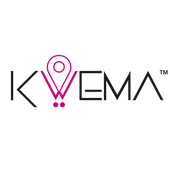Hotel housekeeping staff can face many different kinds of risks, including repetitive motion injuries and exposure to bacterial infections, but some people may not realize housekeeping staff can also be easy targets for sexual harassment. There have been many instances of workers in these horrible situations where they come face-to-face with a guest and are exposed to sexual harassment.
Since the #MeToo movement took off in 2017 when there was a continuous wave of sexual harassment allegations from women against powerful men in the entertainment industry, many people seem to ignore the issue in the hospitality industry, with female hotel housekeepers being sexually harassed and assaulted by male guests. As surreal as it seems, statistics show that the vast majority (53 percent) of all female hotel housekeepers have been victims of some form of sexual harassment while at work. The #MeToo movement pushed thousands of hotel housekeepers in several major cities and states to fight for panic buttons to use at work. It’s a simple, straightforward solution to keeping workers safe. The use of panic buttons and other safety wearables have been a success for mitigating workplace violence many industries.
In September 2018, 17 hotel brands signed the 5-Star Promise, which vowed to implement certain policies and technologies by the end of 2020 to keep employees safe. The pledge includes providing employees with safety wearables, having strict anti-harassment policies in place, and offering consistent employee training on preventing and responding to sexual harassment. The American Hotel & Lodging Association, a hospitality industry group that initiated the pledge, said more than 50 hotel chains have agreed to the same commitment. In June 2019, New Jersey Gov. Phil Murphy signed a bill that he and others said is the nation’s first law requiring most hotels to provide their workers with safety wearables.
Safety wearables in the hospitality industry is something that is growing quickly. Illinois, Florida and Washington are other states that are putting together laws requiring the use of wearable ‘panic buttons’ and I believe the number of states will keep rising. Some hotel chains including Marriott and Hilton have announced plans to provide the wearables to their workers without being forced by the government, and going along with the 5-Star Promise, I expect we are going to see more and more hotel brands implement these wearables going forward. Kwema is an example of a safety wearable company that can mitigate these safety risks by providing employees with discreet devices that activate an emergency protocol, alerting hotel security or 911.
Watch how Kwema is disrupting workplace safety
